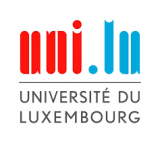
Company name : University of Luxembourg
Activity sector : Teaching
Company category : Public sector
Description of the action
The ADVANCEmentoring Program aims to foster a supportive research culture, strengthen the connections among the research community, and promote opportunities for researchers to advance in their careers. The program was initiated by the University of Luxembourg and is now a collaboration with the Luxembourg Research Institutes: LIH, LISER, and LIST.
ADVANCE has three main pillars:mentoring Activities, Training and Networking
1. The research community will be encouraged to participate either as a Mentor or Mentee.
2. All participants receive orientation training at the start of the program, to promote effective learning conversations. Furthermore, the program includes career development workshops, targeted at developing the mentees’skills and supporting them in advancing their careers.
3. In addition to thementoring activities, ADVANCE will promote networking events for women researchers, and other interested staff.
We expect ADVANCE will increasingly contribute to the empowerment of researchers and staff at the University of Luxembourg and partner institutions, making Luxembourg an even more attractive place to work, where everyone feels inspired and included!
Context
Despite significant progress ingender equality, academia continues to face a persistent problem ofgender imbalance and a “leaky pipeline”, resulting in underrepresentation and limited career advancement opportunities for women. The “leaky pipeline” refers to the phenomenon where a substantial number of women leave the academic career path at different stages, a phenomenon that is evident across disciplines. Thisgender disparity not only perpetuates systemic biases but also hampers the academic community's ability to benefit from diverse perspectives and talents, hindering scientific progress and innovation.
Thegender misbalance in academia manifests in several ways, including lower representation of women in senior positions, disparities in research funding and publication rates, and well-being. Addressing this problem is crucial for fostering an inclusive and equitable academic environment that ensures the retention and support of talented women throughout their academic path.
Objectives
With ADVANCE we aim to achieve the following objectives:
1. Establish and cultivate amentoring culture through the creation of a dynamicmentoring program.
2. Promote an environment where researchers, in particular women, feel supported.
3. Strengthen the offer of formal and informal career development activities for researchers.
Approach
ADVANCE is grounded on the Humanistic theory and in the quality standards and the global ethics code of the Europeanmentoring and Coaching Council (EMCC), and it takes the EMCC definition ofmentoring.
ADVANCE takes a learner-centered and holistic approach that recognizes the value of individual potential, autonomy, positive relationships, and personal growth. It seeks to nurture the unique strengths, talents, and aspirations of mentees and empower them to take ownership of their learning, development, and career choices. In addition, it will encourage mentors to provide personalized guidance and support that aligns with the mentees' individual needs and goals, fostering their self-discovery, self-actualization, and personal growth.
By fostering open communication, active listening, and empathy, ADVANCE will contribute to an environment where people connect and contribute to a sense of belonging/community.
ADVANCE is organized into three strands: Faculty, Fellows, and Circles. The Faculty and Fellow strands are a 1-on-1mentoring format, where the distinction is based on experience and the type of contract (the faculty strand is planned for researchers with a permanent contract while the fellows’ strand is thought for non-permanent researchers). The Circles is a groupmentoring format aimed specifically at Doctoral Candidates.
Mentoring schemes are a prominent instrument already established in the top European universities to promote women and early-career researchers.
Impact
We expect ADVANCE to actively promote:
1. Motivation and engagement of the research community.
2. Support women to stay in research careers.
3. Promote a stronger alumni network.
4. Enhance the visibility/perception of the University/Luxembourg as a world-class research destination.
In 2023 we completed a pilot program for the Fellows and Circles strands, where we received overwhelmingly positive feedback. Virtually all participants (Mentors and mentees) would recommend the program and rate it on a scale of 1-5 (with 5 being the highest) with 4.6 and 4.8 for the Fellows and Circles, respectively.
The first call for applicants for the Fellows received more than 55 applications for 20 positions, clearly attesting to the need for this initiative.
Testimonials:
[Mentor] The mentorship program helped me reflect on my own practice and experience; [Mentee] The ADVANCE program provided me with an environment of support, resources, and reflection-provoking activities that were crucial in helping me figure out what my goals and wishes are and what my next steps should look like.
« To do »
- For the sustainability and impact of a new mentoring program, it must be linked and coordinated with complementary actions at the university. Discussions with different internal stakeholders are highly recommended.
- Orientation training on mentoring for ALL participants: Mentors and mentees
- Clear definition of roles, expectations, and boundaries.
- Dates of events made available from the beginning.
« Not to do »
- Assume participants know what they should do during a mentoring conversation.
- Merely matching individuals is insufficient; follow-up is necessary to ensure effectiveness.